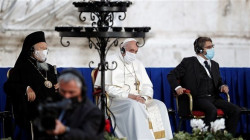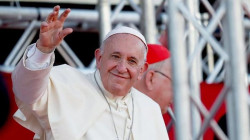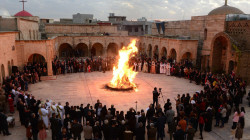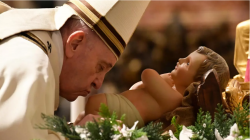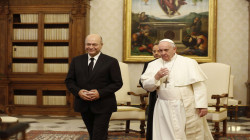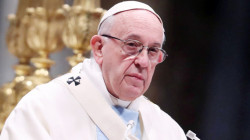Pope Francis: The Revolutionary Supreme Pontiff
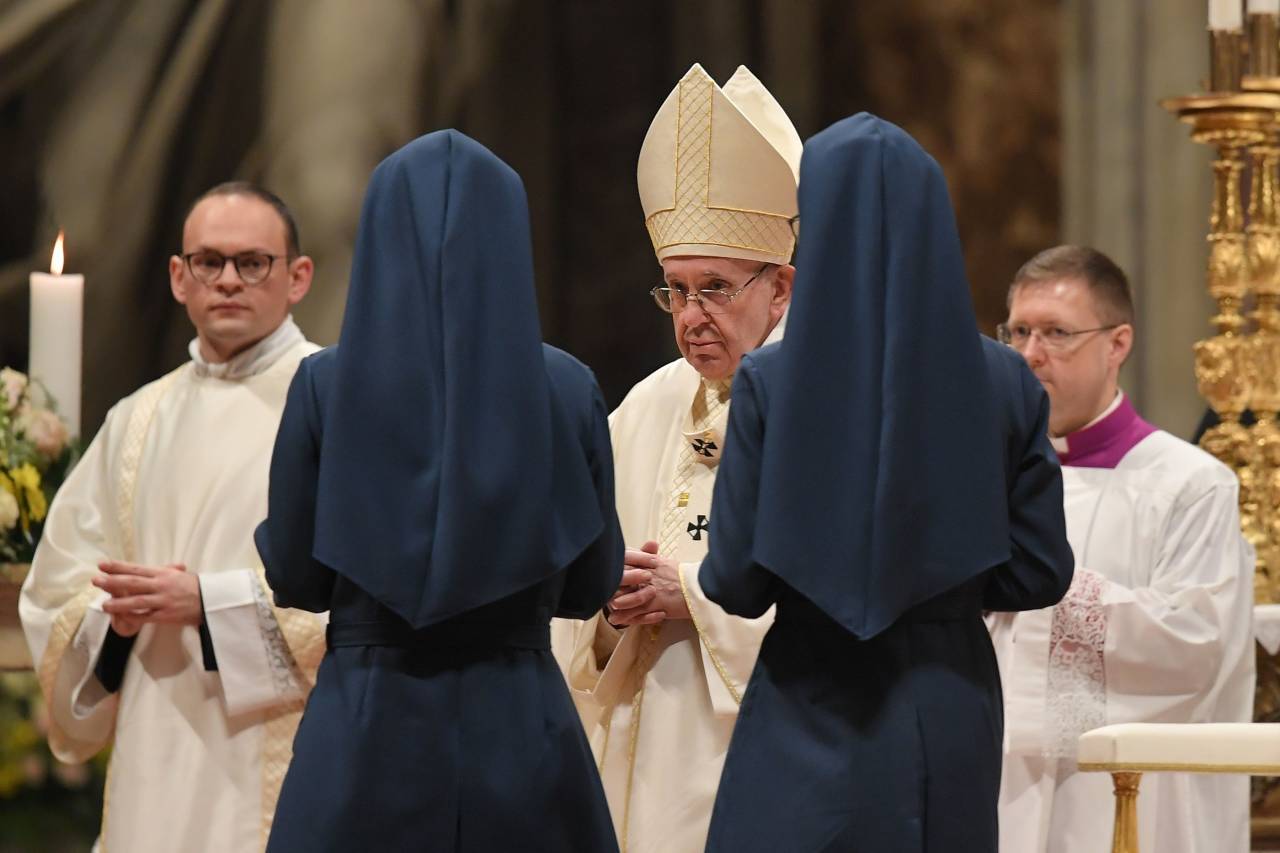
Shafaq News / Jorge Mario Bergoglio, the Vatican's 266th Pope, is the first non-European Pope in more than 1,000-year history of Papacy and the first Jesuit priest. His reformist imprints in the Catholic Church have soon begun after his election in March 2013.
He chose the name "Francis" after st. Francis of Assisi, who lived some 800 years ago, called for the Church's reform, lived as an advocate of the poor and visited Egypt to meet the Ayyubid king to call for peace and brotherhood, despite the bloody battles brought by the crusader invasions of the region.
Pope Francis was born in Argentina on December 17th, 1936. His father was an immigrant from Italy, and his mother is also of Italian origin but was born in Argentina. His family is believed to have left Italy to escape the fascist regime. He is known for his passion for music, films, and football.
Despite his university major in chemistry, in 1958, he entered the Church and joined the Jesuit order at 21.
While he continued to pursue his religious studies, the greatest transformation of his career was when Pope John Paul II chose him to be Assistant to the Archbishop in Buenos Aires in 1992 and then to be Archbishop in 1998.
Even before his election as supreme pontiff, the Pope distinguished his lifestyle and humility compared to the overall image of the Vatican and church leaders. The media often described him as a "revolution" in the Church. For example, despite assuming Archbishop's post, he committed himself to live in a small apartment instead of the Archbishop's residence and refrained from using his limousine with a private driver and used public transport.
When he was elected leader of the Catholic Church, he merely wore a white cloak, renounced the papal dress, distanced himself from adorning the golden ornament, committed to using the Iron Cross he was wearing as Archbishop and did not adopt the Golden Cross. He also refused to live in the Apostolic Palace, opposite St. Peter's Square in the Vatican, and lived in a small house, but he goes to the Apostolic Palace to inspect the crowds. The journalists also noted that he did not wear red papal shoes but only wore plain black shoes.
Estimates vary as to whether the Pope is considered a liberal or a conservative. However, given his many positions on social issues, he seemed conservative on sex-related issues and liberal in social justice matters. In his years of pastoral work in Argentina, he often faced the government because of decisions that affected, for example, the repression of demonstrators or the interests of farmers, immigrants, the marginalized, and the poor. He is known as a supporter of dialogue and acceptance of opinions.
In recent years, he has been celebrating holiday ceremonies differently from his predecessors, repeatedly making sure to spend them with poor and marginalized people. In his priestly career, he was keen to follow the traditions of the Maundy Thursday of Jesus, which commemorates the practice of ceremonial foot-washing to imitate Jesus, who washed his disciples' feet.
Last year, the Pope visited a refugee center where he washed and kissed 12 refugees' feet - some of which were Muslim girls - becoming the first Vatican Pope to wash the feet of women or non-Catholics.
The surprises in the Pope's personality are not limited to that. While in Argentina, he apologized on behalf of the Church for its "inaction" in confronting the military regime that ruled Argentina and committed many crimes against opponents.
The Pope said, "Believers and atheists can be strong allies in their efforts to defend human dignity, build peaceful coexistence among all people, and protect the universe".
More recently, he broke with the prevailing Catholic tradition and appointed Nathalie Becquart as the first woman to the post of the deputy of the Bishops' Council, granting her voting rights in a body that examined key matters of faith.
He also called for COVID-19 vaccines to be made available to all and priority for the poor, fearing that they would be available only to the rich.
The Pope criticized capitalism, saying that the pandemic showed that free-market policies could not meet all the most pressing needs of humanity, "The poor are persecuted for demanding work, and the rich are applauded when they flee justice".
Last November, the Pope appointed Wilton Gregory to become the first African-American cardinal in the Catholic Church's history.
In 2020, the Pope's activism was marked by speaking out against social injustice issues. When the U.S. police killed George Floyd, he said, "We can not turn a blind eye to racism".
When the media described The footballer Messi as "a god," the Pope, known for his encouragement of FC Barcelona, said that it was "a violation of divine sanctity".
Two years ago, when a gunman committed the massacre of two mosques in New Zealand, the Pope said, "Let us pray for our Muslim brothers who were killed".
In February 2019, when he paid an official visit to the UAE, he delivered a speech that he began with a "Peace Be upon you" greeting and signed the so-called "The Declaration of Abu Dhabi". However, before arriving in Abu Dhabi, which takes part in the War in Yemen, he sent an implicit but very clear political message when he prayed for the "hungry and exhausted children of Yemen".
He rejected the Syrian war and repeatedly prayed and called to renounce weapons and fighting. He always refused to link Islam with terrorism.
In 2016, at the height of terrorist attacks after ISIS took control of large areas of Iraq and Syria, Pope Francis received a large delegation representing different religions worldwide. He said, "Unfortunately, not a day goes by without hearing of violence, conflict, kidnapping, terrorist attacks, assassinations, or destruction. It is outrageous that barbaric acts are sometimes justified in the name of religion or the name of God. Let us condemn these evil acts that desecrate the name of God".
The Pope has visited the region, including Jordan, Palestine, Palestine, Egypt, Morocco, and the United Arab Emirates. He was the first Pope to travel directly to the West Bank in Palestine, and during his visit, he went to the separation wall between Jerusalem and Bethlehem, where he stopped for prayers.
The Pope's visit to Iraq is of great importance given that it is seen as a visit to the land of the prophet Ibrahim and because Iraq is going through a new phase after many wars and massacres in the past years. He is betting on encouraging Christians to hold on to their land and, most importantly, their co-existing alongside their "brothers" of other sects and minorities.
In 2014, during a visit to Turkey, Pope Francis and Orthodox Ecumenical Patriarch Bartholomew said in a joint statement that a Middle East free of Christians who have practiced their faith for 2,000 years could not be accepted. Stressing, "The terrible situation of Christians and all those suffering in the Middle East requires not only constant prayer but also an appropriate response from the international community".
